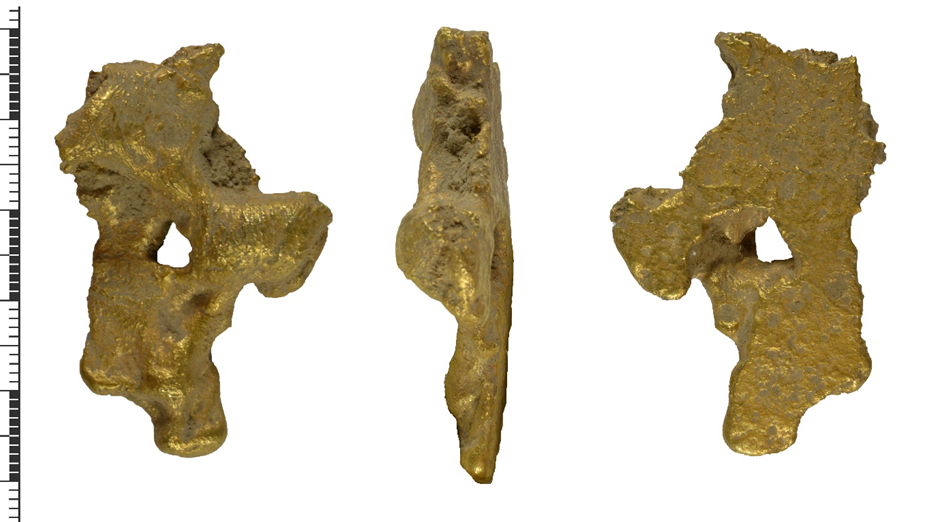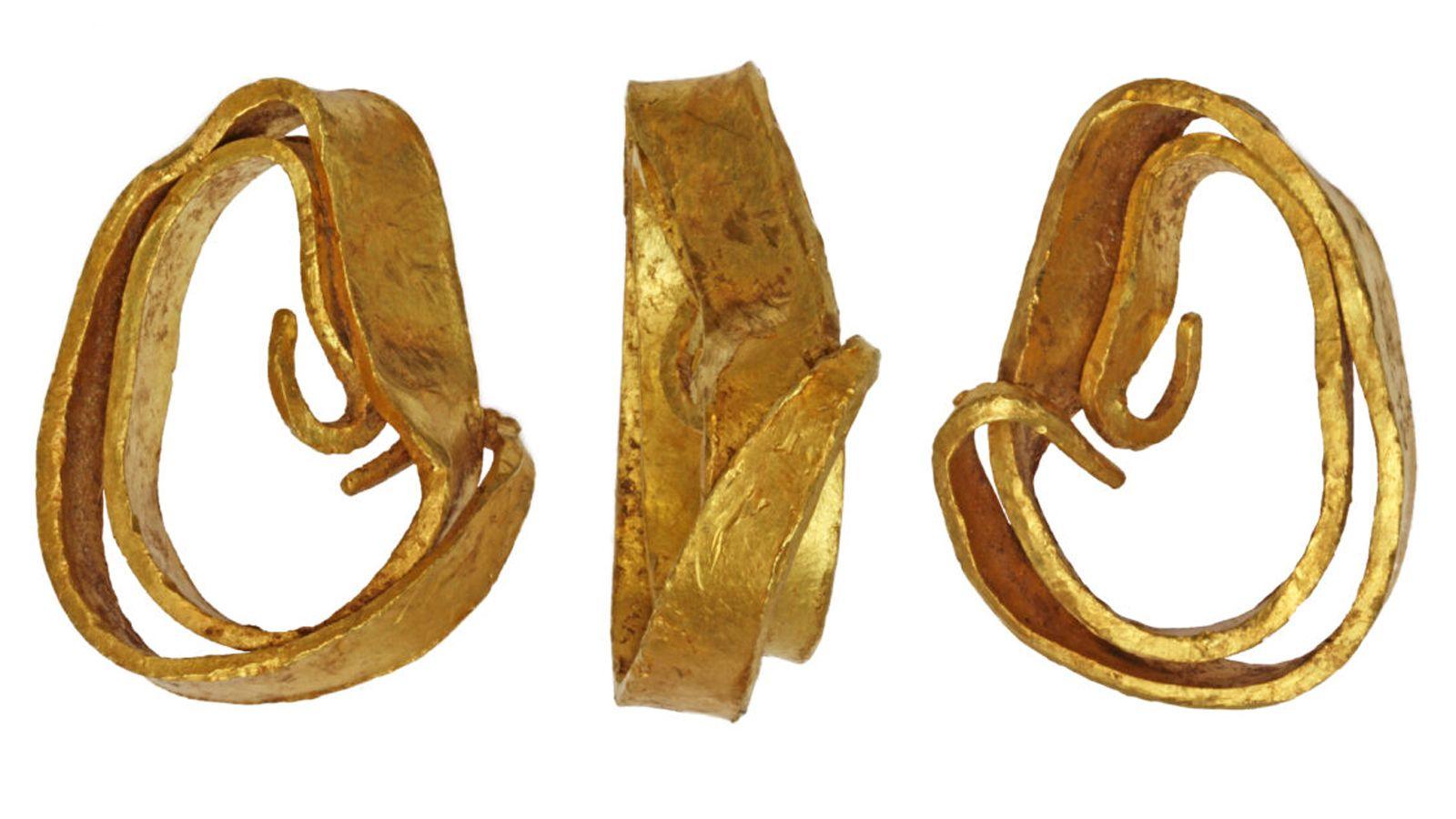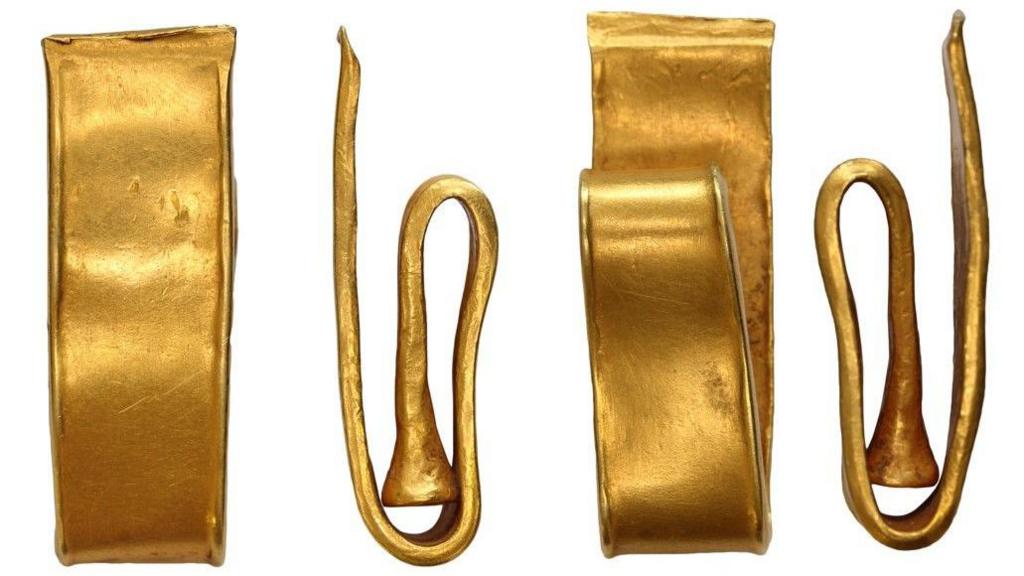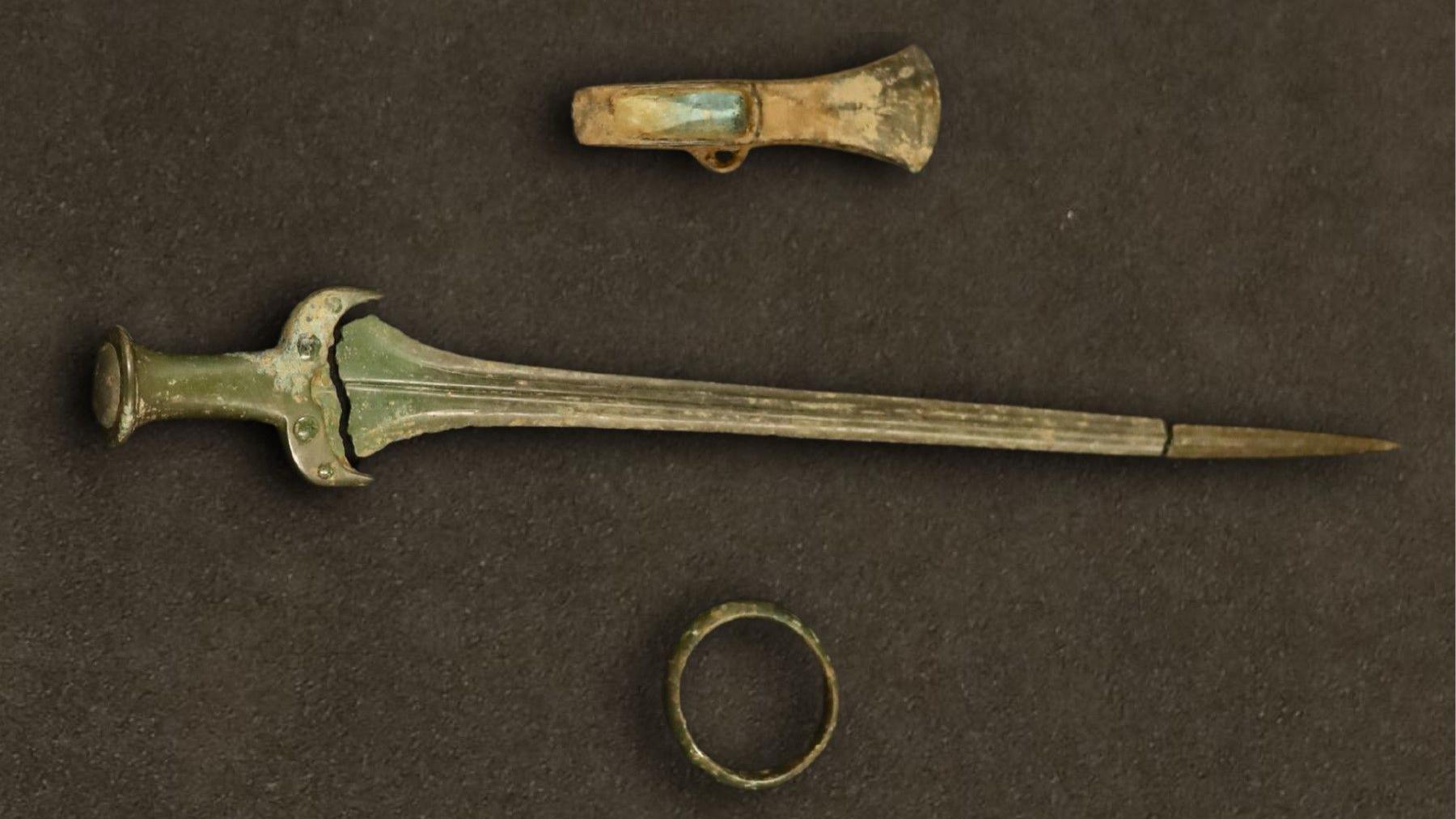Two 3,000-year-old blobs of gold valued at £3,000

The high purity gold is believed to be the by-product of Bronze Age goldworking
- Published
Two 3,000-year-old blobs of gold found in field in Dorset are the subject of a fundraising campaign to keep them in public hands.
The gold remnants, weighing a total of 63g (2oz), were valued at £3,000 after being discovered by metal detectorists at Melcombe Horsey in October 2019.
Found to be of very high purity, they are believed to be the by-product of Bronze Age goldworking activity.
Dorset Museum, which is hoping to acquire the treasure, has raised half the amount needed through grant funding and is appealing for donations for the rest.
One of the pieces is about 4.5cm long (1.8in) and weighs just under 49g (1.7oz) while the second is 1.5cm long (0.6in) and weighs just about 14g (0.5oz).
The museum's archaeology curator, Jon Marrow, said: "Though they may seem modest at first glance, these pieces offer an extraordinary glimpse into prehistoric craftsmanship.
"They are tangible traces of human activity from a time when gold held powerful social and symbolic meaning."
The fragments are part of a growing body of evidence pointing to significant Bronze Age activity in the area.
Nearby finds include a copper-alloy axe head, a collection of gold fragments, and a bent gold bracelet, all within several hundred metres.
The museum is hoping to acquire the objects to put on display and for further research.
The grant funding has come from the Arts Council England/V&A Purchase Grant Fund.
Get in touch
Do you have a story BBC Dorset should cover?
You can follow BBC Dorset on Facebook, external, X (Twitter), external, or Instagram, external.
Related topics
- Published13 May

- Published5 August 2024

- Published4 June 2024
